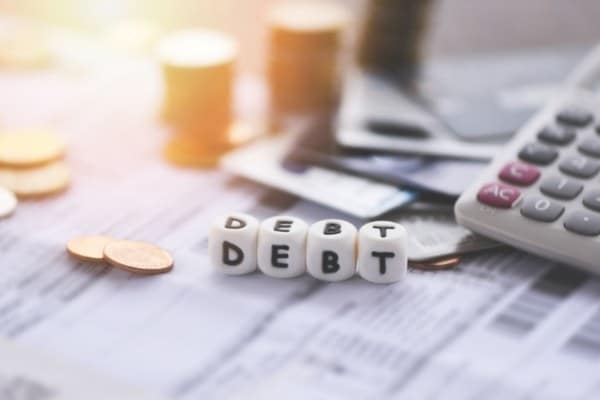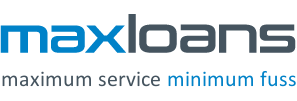
15 Sep The Difference Between Good Debt And Bad Debt
Borrowing money and taking on debt is for many people the only way to afford to buy those important big-ticket items – like a house or a car. But before you take on any debt, it’s a good idea to assess whether it’s good debt or bad debt.
Not sure of the difference? A basic distinction is the effect it has on your financial situation. Good debt has the potential to increase your net worth, or enhance your lifestyle in an important way. Bad debt – on the other hand – is generally used to pay for discretionary expenses and often comes with high interest charges.
To help you make good choices when it comes to taking on debt, here are some general guidelines about each of these types of debt.
What is good debt?
Good debt is classified as that which helps generate income or build your net worth. It’s typically low interest debt that has a positive impact on your financial situation.
Some of the things that fall under the good debt category include:
Mortgage
As quite possibly your largest – and most important – financial decision, taking on a home loan is considered good debt. Whether it’s a first home you’re buying, or an investment property or holiday home, real estate can be used to generate income by renting it out, or as a source of cash flow and potential capital gains when the property is sold.
Of course, it’s important you’re clear on how much debt you can realistically afford when you take on a home loan, as too much of any kind of debt can quickly turn into bad debt. Before you head out to shop for a new home, talk to our mortgage team at Max Mortgages and obtain pre-approval, so you know exactly how much you can afford. What’s more, if you already have a mortgage but are struggling to keep up with your mortgage repayments, our mortgage team can also work with you to help you refinance your current mortgage to a bad credit home loan that better suits your needs. This option may also give you the chance to roll your other debt into your home loan to simplify your finances and get your debt under control. To know more about what our mortgage specialist team can offer, give us a call on 0800 ASK MAX (0800 275 629)!
Home Improvement Loan
If you are a homeowner, your home is likely your largest investment, so it makes good financial sense to maintain it properly. However, home improvement projects, like replacing a leaky roof and upgrading a kitchen, can put a real strain on the finances, and many homeowners can only afford these projects through a home improvement loan, which is a separate personal loan used to finance home renovations and repairs. A home improvement loan is usually considered good debt, as it gives homeowners access to funds needed to increase their home value and make their house safer and more enjoyable to live in. If you are one of those homeowners who need to do a home maintenance or repair project, but don’t have the cash on hand, we at Max Loans can assist with a competitive home improvement loan to help kick-start your project. Depending on the size of the project and your financial situation, our mortgage team at Max Mortgages can also help you increase your home loan to fund your renovation project. Talk to us to discuss your needs and options today!
Car Finance
For most people, a car is a part of everyday life. Depending on where you work and live, it may even be an essential item. Having a car could put you in a better position to get or keep a job and earn an income. That’s why investing in a reliable car makes good financial sense, and using car finance to buy a car may be considered good debt.
However, taking on high interest debt can end up being bad debt if not managed correctly. Interest charges and other fees could make it harder for you to repay your car finance debt. It could even lead to your car being repossessed if you’re unable to meet your repayment obligations. Working with a car finance expert – a Max Loans Personal Lending Adviser – puts you in the best position to carefully manage your car finance and ensure it remains good debt.
Student Loans
Education tends to have a positive impact on your financial – and personal – situation. Generally, the more education you have, the greater your earning potential, and the more likely you are to find employment. So education is seen as an investment in yourself and in your future, and, as such, is generally regarded as good debt.
What is bad debt?
Bad debts are those expensive debts that typically drag down your financial situation. Bad debts generally don’t provide any return on investment; they’re often debt used for discretionary expenses or items that lose value. However, just keep in mind that not all debt can be easily classified as good or bad. Determining whether a debt is good or bad for you also depends on how it fits into your budget and other factors. Certain types of debt can be good for some people but bad for others. A holiday loan with fair rates, for example, can be good debt if managed responsibly, as a favourable repayment history can be reflected in credit scores and therefore put you in a better position to qualify for credit or better terms in the future. However, it can be bad debt for someone who can’t realistically afford the repayments. Most bad debts come with high interest rates or additional fees that leave you worse off financially.
Sometimes, bad debts are just good debts that have gone wrong. Perhaps you’ve taken on too much debt and you can’t realistically repay it. In this case, you may need debt consolidation loans to help you get on top of your repayments again.
Here are some examples of bad debt:
Credit Cards
Unless you’re able to repay your credit card in full every month, getting on top of high interest credit card debt can be a huge challenge. This type of debt can significantly impact both your credit score and your financial health if not used wisely. It’s best to think twice before adding more debt to a high interest credit card, as often there are more financially viable NZ Loan alternatives available, like personal loans.
Payday Loans
High interest loans – like payday loans – are short-term, small-amount loans that need to be repaid when you receive your next pay check. These types of loans can quickly turn toxic and often come with very steep interest rates and charges, which make them significantly unaffordable. If you are struggling to repay pay day loans or high interest loans, get in touch with a Max Loans’ Personal Lending Adviser right away, as we may be able to find a personal loan or debt consolidation loan solution for you instead.
Get on top of bad debt today
Taking control of bad debt is not easy, but it’s also not impossible. With help from a Personal Lending Adviser from Max Loans, you may be able to move all of your bad debt into debt consolidation loans that will not only help you clear your debt much faster, but also positively impact your credit score, making it easier for you to secure good credit in the future.
If you’d like to find out more about NZ loans, or you need advice about clearing bad debts, contact the team at Max Loans today.
Apply Now
Find this article helpful? Don’t forget to like it or share it on Facebook.


